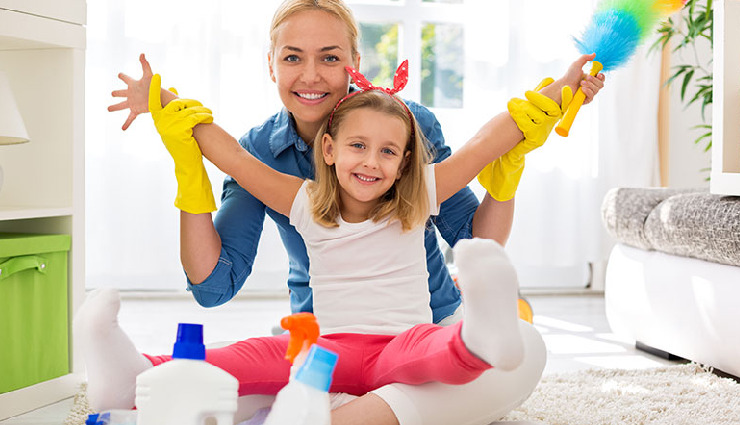- Home›
- Mates & Me›
- 5 Parenting Tips To Help Teach Kids About Cleanliness
5 Parenting Tips To Help Teach Kids About Cleanliness
By: Priyanka Maheshwari Mon, 18 Nov 2024 11:54:29

Beyond his role in India’s independence movement, Gandhi was also a dedicated advocate of cleanliness and hygiene, famously saying, “Cleanliness is next to godliness.” Scientifically, this idea holds true: research shows that good hygiene not only protects against disease but also supports overall well-being.
In celebration of this special day, here are five parenting tips to teach kids about cleanliness!

# Lead by Example
Children often imitate their parents, so setting an example is essential. Research in the Journal of Pediatric Nursing suggests that kids are more likely to adopt hygiene habits when they observe their parents practicing them. Consistently model personal hygiene, like handwashing, teeth brushing, and keeping surroundings tidy. This not only teaches but also creates an environment where cleanliness becomes second nature.
# Make It Fun and Educational
Teaching kids through engaging, educational activities makes learning about cleanliness enjoyable. The Journal of Health Education found that gamifying hygiene education enhances children’s understanding and memory of these habits. Use games, colorful charts, and age-appropriate videos to make cleanliness fun. Learning through play keeps kids engaged and helps lessons stick.

# Set a Routine
Consistency helps establish good hygiene habits. A study in the Journal of Applied Behavior Analysis highlights the importance of routines in shaping behavior. Create a daily schedule that includes specific times for brushing teeth, bathing, and tidying up. Routines make these habits second nature and part of daily life.
# Explain the "Why" Behind Cleanliness
Children are more likely to cooperate when they understand the reason behind hygiene practices. The Journal of Health Communication shows that explaining things increases children's willingness to follow through. Use simple language to help them grasp why cleanliness matters for their health. This not only fosters compliance but also encourages a deeper understanding of its importance.
# Encourage Independence
Allowing children to take charge of their hygiene builds responsibility. Research in the Journal of Child Psychology and Psychiatry indicates that promoting independence boosts self-esteem. Guide them, but let them handle their own hygiene routine as much as possible. This empowers them and fosters a sense of ownership over their cleanliness.
Related Stories:
# 5 Practical Steps Parents Can Take To Manage a Kids Public Meltdown Effectively
# 6 Tips To Build Trust in Parent Child Relationship
# 10 Tips To Set Healthy Boundaries in a Relationship





